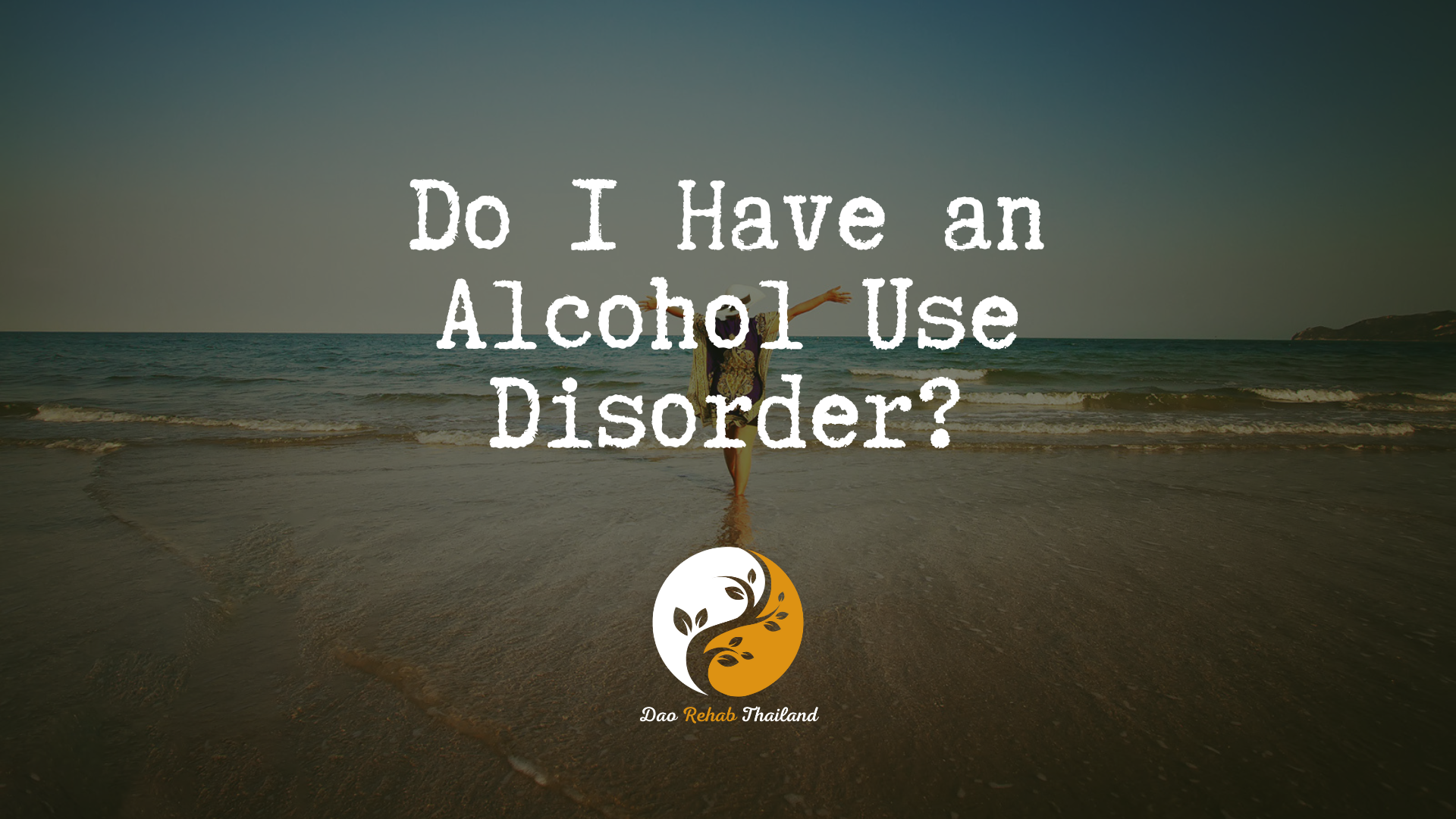
Do I Have an Alcohol Use Disorder?
Do I Have an Alcohol Use Disorder?
“Turning the impossible into possible”

"Detox from Alcohol at a Luxury Holistic Center in Thailand and Israel"

Do I Have an Alcohol Use Disorder?
If you’re wondering whether you may have an alcohol use disorder (AUD), there are several signs and symptoms you can look for to help assess your relationship with alcohol. AUD is a medical condition that ranges from mild to severe, depending on how alcohol affects different aspects of life. Here are some common indicators that may suggest AUD:
"Holistic Center for Trauma, Addiction, and Mental Imbalance Treatment in Thailand"
“Come to the beginning of the journey to freedom from addiction to alcohol, drugs, and pills, and rediscover your life within the quiet embrace of DaoTherapy Rehab in Thailand—where holistic healing meets empowering recovery.”
DaoTherapy Holistic Rehab
Key Elements of Alcohol Detox:
Medical Supervision: Alcohol detox must be conducted under medical supervision, as the body may experience withdrawal symptoms. These can include nausea, anxiety, muscle aches, and insomnia. A medical team will monitor and manage these symptoms to ensure the patient’s safety and comfort.
Holistic Therapies:
Holistic Therapies: Many detox programs incorporate holistic therapies such as mindfulness, yoga, and meditation to help individuals cope with stress and anxiety during the detox process. These therapies support the mind-body connection and contribute to overall recovery.
Tapering Process
Tapering Process: Alcohol detox often involves a gradual tapering of the drug to reduce withdrawal severity. Doctors will slowly decrease the dosage over time to allow the body to adjust to lower levels of the substance.
Psychological Support:
Psychological Support: Like any addiction recovery process, detox from Alcohol includes psychological support. This can involve counseling, therapy, or support groups to address the mental and emotional aspects of addiction.
Post-Detox Treatment:
Post-Detox Treatment: After completing detox, continuing treatment is crucial to prevent relapse. This often includes participation in ongoing therapy, group support, and the development of new coping strategies to maintain sobriety.
Loss of Control Over Drinking
If you’re wondering whether you may have an alcohol use disorder (AUD), there are several signs and symptoms you can look for to help assess your relationship with alcohol. AUD is a medical condition that ranges from mild to severe, depending on how alcohol affects different aspects of life. Here are some common indicators that may suggest AUD:
1. Loss of Control Over Drinking
– Drinking More or Longer Than Intended: If you often drink more alcohol than you planned or continue drinking for longer than you intended, this may be a sign of AUD.
– Unsuccessful Attempts to Cut Down: If you’ve tried to cut down or quit drinking but haven’t been able to, this may indicate a loss of control over alcohol use.
2. Increased Tolerance and Physical Dependence
– Need for More Alcohol to Feel Effects: Over time, you may need more alcohol to achieve the same effects, indicating increased tolerance.
– Experiencing Withdrawal Symptoms: Physical symptoms like sweating, shakiness, anxiety, nausea, or irritability when you’re not drinking can signal alcohol dependence.
3. Cravings and Preoccupation
– Strong Urges to Drink: If you frequently experience intense cravings or urges to drink, this may indicate AUD.
– Thinking About Alcohol Often: Spending a lot of time planning when and how you’ll drink or feeling preoccupied with alcohol can be a sign of dependency.
4. Neglecting Responsibilities and Activities
– **Ignoring Obligations**: Neglecting responsibilities at work, school, or home because of drinking is a common sign.
– **Loss of Interest in Hobbies**: If alcohol has taken the place of activities you used to enjoy, this may indicate a problematic relationship with drinking.
5. Social and Relationship Problems
– **Strained Relationships**: Drinking can often lead to conflicts or hurt relationships with family, friends, or coworkers.
– **Isolation**: If you tend to isolate yourself to drink or avoid social situations where drinking is not possible, this may be a warning sign.
6. Drinking Despite Negative Consequences
– Continued Use Despite Harm: If you continue drinking even though it’s causing physical, mental, or social harm, it may indicate AUD.
– Health Issues: Ignoring health problems related to alcohol, like liver issues, high blood pressure, or anxiety, can suggest an alcohol use disorder.
Self-Assessment Tools
– CAGE Questionnaire: This quick self-assessment includes four questions to help identify potential drinking problems:
1. Have you ever felt you should Cut down on your drinking?
2. Have people Annoyed you by criticizing your drinking?
3. Have you ever felt Guilty about your drinking?
4. Have you ever had an “Eye-opener” drink in the morning?
Answering “yes” to two or more questions can indicate a potential alcohol problem.
Next Steps
If these signs resonate with you, or if you feel concerned about your drinking, consider talking to a healthcare professional who can provide a thorough assessment and recommend treatment options. Many people find support in counseling, therapy, or support groups like Alcoholics Anonymous (AA) or SMART Recovery.
Acknowledging concerns about alcohol use is a powerful first step, and with the right support, it is entirely possible to regain control and improve your health and well-being.

contact us
Contact us with your questions
We would love to speak with you! Feel free to reach out with any questions.

get in touch
Schedule a free consultation
Schedule a free consultation with our team and let’s make things happen!








